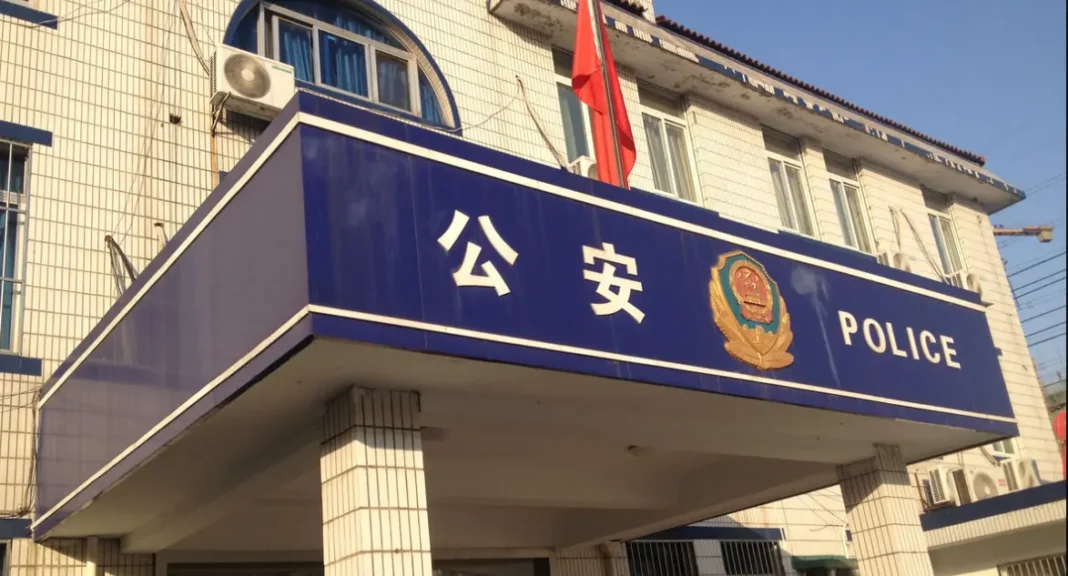In the feverish panorama of global news, narratives often set the stage for international chess games played on a murky board. Lately, Western mainstream media, predominantly English-language outlets from the ‘Five Eyes’ intelligence alliance countries, have been saturated with spine-chilling tales of clandestine “Chinese police stations.”
These enigmatic stations, as the narrative unfurls, are covert security and intelligence cells of the Chinese Communist Party (CPC). They lurk behind innocent-looking facades of private businesses operated by Chinese immigrants, such as restaurants. Their alleged purpose? To spy and oppress pro-democracy ex-pats, among other unspeakable activities.
Beijing has consistently denied these accounts, attributing them to harmless initiatives by regional public security bureaus during the COVID-19 pandemic. According to China, these centers primarily provide overseas Chinese citizens with mundane administrative services like driving license renewal.
Yet, these counterclaims fell on deaf ears. The narrative of malevolent Communists operating hidden spy bases and extending China’s authoritarian reach overseas is ever-strengthening. One high-profile case unfolded in April, when the FBI targeted a “Chinese police station” in Lower Manhattan, New York, nested in a charity organization’s offices. Founded in 1998, this organization’s mission was to aid Chinese nationals from Changle, Fujian, in southeast China.
“The PRC, through its repressive security apparatus, established a secret physical presence in New York City to monitor and intimidate dissidents and those critical of its government,” the Justice Department’s National Security Division thundered. Their fiery proclamation, as shocking as it sounded, was contrasted by the seemingly mundane reality that the so-called “secret police station” was widely advertised as a resource for Chinese citizens seeking remote administrative services in NYC.
Across the ocean, the U.K. Security Minister announced the outcome of investigations into alleged CPC security cells in London and Scotland, stating no evidence of illegal activity by the Chinese state was found at these sites. Yet, the lack of tangible proof has not dampened the fervor of organizations like Safeguard Defenders, the primary source behind the “Chinese police station” hysteria. This organization’s intriguing ties with a notorious CIA front will form the backbone of our story.
A closer inspection into the origins of Safeguard Defenders reveals a tangled web that dates back to 2009. Founded by Swedish “human rights activist” Peter Dahlin, the Chinese Urgent Action Working Group (China Action) claimed to support China’s burgeoning lawyer community. They established a network of pro bono legal aid centers in China’s rural areas, serving local communities. Yet, it was forcibly shuttered in 2016, in a significant crackdown by Beijing, due to the rampant abuse allegations and violation of laws by local police and government.
What is omitted from this tale of intrigue and bravery is the intricate connection of China Action with the National Endowment for Democracy (NED), a known front for the CIA. Unbeknownst to many, the NED has an infamous track record of financing lawfare in “enemy” countries, with destabilizing effects often detrimental to the targeted nations.
The newly-minted Safeguard Defenders, however, adopted a more public approach, albeit with a more opaque funding structure. Yet, the promotion by NED’s “daily blog” DemDigest implies a continuation of the financial relationship that once existed with China Action.
In the years following its establishment, Safeguard Defenders churned out a litany of reports on alleged human rights abuses in China. However, their breakthrough moment arrived in September 2022 with the release of “110 Overseas – China’s Transnational Policing Gone Wild,” sparking a global.“110 Overseas” consists of a series of largely unsubstantiated anecdotes in which anonymous individuals allege to have been harassed by the Chinese state. Its very title refers to the emergency services number in China, which is supposedly being used by PRC security apparatchiks to menace Chinese nationals living abroad via text and phone call. However, it could well be the case that Safeguard Defenders’ supposed victims were in fact targeted by fraudsters, given the country’s infamous epidemic of telephone scams.
The report also alleged that the Chinese government was installing “police stations” all over the world, which are used as centers for spying and harassment operations, with a specific focus on anti-Beijing dissidents. This report, despite lacking concrete evidence and relying solely on unverifiable accounts, was widely shared and accepted without critical analysis by Western media. With the allegations being directly against the Chinese government, a notorious rival of the Western world, it seems that this lack of concrete evidence was overlooked, pushing forward a narrative that could fit nicely into the West’s geopolitical agenda.
After the launch of “110 Overseas”, a flurry of reports about these “Chinese police stations” emerged from Western media outlets. Every single one of these pieces cited Safeguard Defenders as the primary or sole source of their information, portraying them as a neutral, reliable, and impartial source without any vested interests or ulterior motives. Yet as we have seen, this could not be further from the truth.
In particular, Safeguard Defenders made claims about a “Chinese police station” in Lower Manhattan, which was described as a clandestine operation working under the guise of a Chinese charity. The organization in question was the “Fujianese American Association”, which was established in 1998 with the aim of assisting Chinese immigrants from the region of Fujian in southeast China. However, the FBI raided the offices of the charity in April, resulting in the indictment of two of its leading members for allegedly being agents of the PRC and obstructing justice.
Must See –> Ready Or Not: When Prepping is Biblical and When It’s Not – Confessions of a Christian Prepper!
The narrative that has been woven around this episode is highly dramatic and deeply conspiratorial. The rhetoric used by the Department of Justice in the official press release on the raid paints a picture of an aggressive and repressive PRC covertly operating on US soil. However, the reality is far less theatrical.
Firstly, the “Chinese police station” in question was not some covert, underground operation – it was openly and widely advertised as a place where Chinese citizens in New York City could access administrative services remotely. Secondly, the charges laid against the two individuals from the Fujianese American Association were not based on any substantial evidence. In fact, the only contact they appeared to have had with Chinese state officials was with the Chinese Ministry of Public Security’s Traffic Management Center.
A similar lack of substance is found in the allegations made by Safeguard Defenders about alleged CPC security outposts in London and Scotland. The UK Security Minister himself announced that police investigations found no evidence of any illegal activity on behalf of the Chinese state across these sites. This was a major blow for Safeguard Defenders, who were the ones to alert the UK authorities about these “police stations” in the first place.
Despite these setbacks, Safeguard Defenders continue to push their narrative, painting a picture of a sinister, covert Chinese Communist operation happening right under our noses. But where does this narrative come from, and who benefits from it?
It’s important to examine the figure at the helm of Safeguard Defenders, Peter Dahlin. Dahlin’s organization has been the sole source of this “Chinese police station” hysteria that has been sweeping across Europe, North America, and beyond.
Safeguard Defenders’ actions and narratives have real-world consequences. Ruiyou Lin, the founder of All Eat, a restaurant delivery app that was falsely labelled a “police station” by Safeguard Defenders, experienced a tumultuous period. His fear for his family’s safety escalated due to continuous accusations of being “secret police,” intrusive gazes from passersby, incessant ringing of his office’s doorbell, and even journalists questioning his son about being a spy. This ongoing situation, which has severely disrupted Lin’s personal and professional life, stems from the paranoid narrative propagated by Safeguard Defenders.

Similarly, Wang Haijun, a Chinese national who operates the Chinese restaurant Dongbangmyeongju, also became a target of these baseless allegations. Wang had to hold a press conference to refute claims of his restaurant being a secret Chinese police station. These charges, levied by Safeguard Defenders, have unjustly disrupted his business and caused unnecessary stress.
Communities of Chinese émigrés also bear the brunt of Safeguard Defenders’ actions. Following claims of supposed “police stations,” the Royal Canadian Mounted Police closed down a network in British Columbia, Ontario, and Quebec. These actions have severely impacted organizations like the Chinese Family Service, hindering their ability to provide critical services to Chinese communities, including French courses, integration of new immigrants, and support for isolated seniors and women victims of violence.
Dahlin, who claimed his motive for establishing China Action was to enhance legal protections for citizens, seems to disregard the principles of presumption of innocence, due process, and the right to a fair trial. Safeguard Defenders, in their pursuit of demonizing Beijing, appears to be promoting the violation of these fundamental democratic principles. Western authorities, disconcertingly, seem to be compliant, contributing to the intensifying New Cold War rhetoric.
The “police station” narrative has shown to be an effective psyop, providing ammunition for those accusing Beijing of hostile foreign interference. This comes at a time when the Chinese Communist Party remains committed to non-interference in other nations’ affairs, even when asked to intervene to protect their Silk Road infrastructure.
In the light of British intelligence’s misinformation campaign linking Kremlin to domestic political turmoil, which eventually escalated into the Russian invasion of Ukraine, one can see a similar pattern emerging. With U.S. military leaders openly discussing potential conflict with China, the need to concoct a justification becomes more pressing each day. This intensifying alarmism over Chinese affairs can be seen as a part of an information war designed to set the U.S. and its allies on a potentially catastrophic path. The “Chinese police stations” narrative is just the latest chapter in this unfolding story.
One thing is clear: a sober, evidence-based analysis of international affairs is crucial to prevent misinformation from escalating into conflict.
Let’s hope that the lessons learned from the “Chinese police stations” incident lead to more skepticism and scrutiny of information sources in the future.






